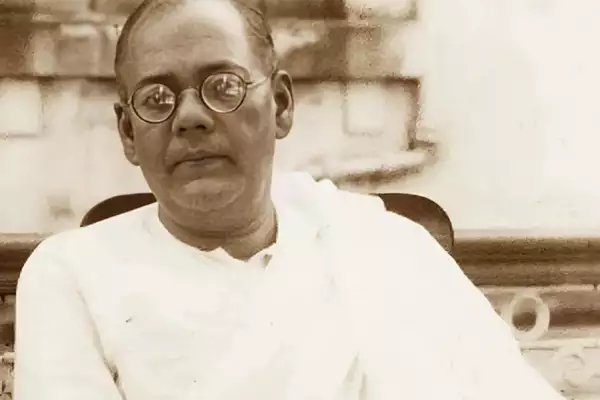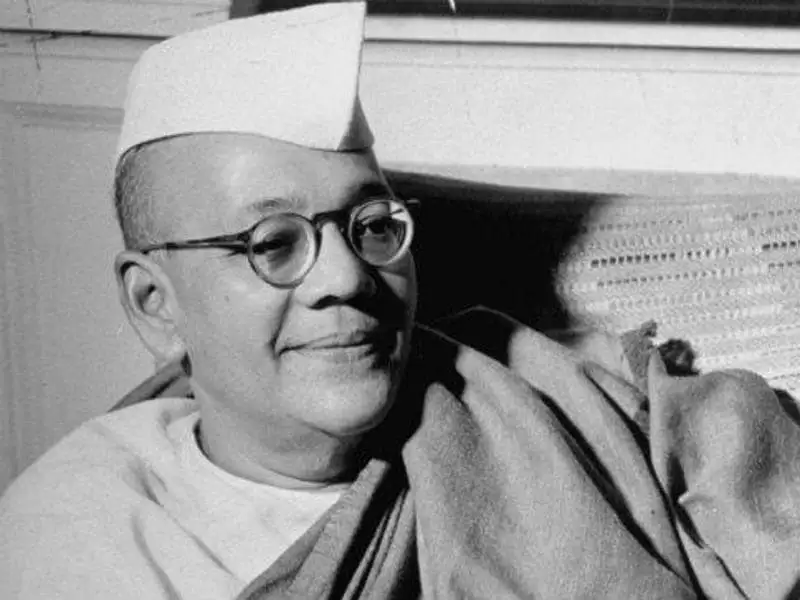About the Sarat Chandra Bose:
Early Life and Background
- Date of Birth: September 6, 1889
- Birthplace: Kodalia, 24 Parganas district, West Bengal
- Family: His younger brother was Subhas Chandra Bose.
Professional Beginnings:
- Started legal career in Cuttack in 1911.
- Trained at Lincoln’s Inn, London.
- Returned to India in 1914 and joined the High Court of Calcutta.
Contribution to Nationalist Movement:
- Role in Independence Movement:
- Actively involved in resisting the British partition of Bengal.
- Joined the Congress Party with his brother Subhas Chandra Bose.
- Supported C.R. Das and the Swarajist movement.
- Associated with socialist parties like the Forward Bloc, founded by his brother.
- Published newspapers such as The Socialist Republican, Mahajati, and The Nation.
- Civil Disobedience Movement:
- Left professional practice to join the movement in 1930.
- Arrested in 1932 for involvement in the movement.
- Imprisonment:
- Detained multiple times, including a significant confinement from December 1941 to September 1945 in Coonoor.
- During imprisonment, faced personal loss with the death of his mother and news of his brother’s alleged death.
Political Involvement and Stance
- Congress Party:
- Elected as Congress leader in the Central Legislative Assembly in 1946.
- Briefly served as a Cabinet minister in the interim government.
- Resigned from the Congress Working Committee in January 1947 due to opposition to the partition of India.
- Elected as an Alderman multiple times in the Calcutta Corporation.
- Opposition to Partition: Vehemently opposed the partition of Bengal and Punjab on religious lines.
Final Contributions:
- Returned to legal practice after the independence of India.
- Advocated for a unified and republican India.
- Death: Passed away on February 20, 1950.
Ref: Source
| UPSC IAS Preparation Resources | |
| Current Affairs Analysis | Topperspedia |
| GS Shots | Simply Explained |
| Daily Flash Cards | Daily Quiz |
Frequently Asked Question:
Who was Sarat Chandra Bose?
Sarat Chandra Bose was an Indian nationalist leader, lawyer, and freedom fighter, who opposed the partition of India.
What role did Sarat Chandra Bose play in India’s independence movement?
He was actively involved in resisting British rule, supporting the Swarajist movement, and joining the Congress Party with his brother Subhas Chandra Bose.
Why did Sarat Chandra Bose oppose the partition of India?
Sarat Chandra Bose strongly opposed the partition of Bengal and Punjab on religious grounds, advocating for a unified India.
What newspapers did Sarat Chandra Bose publish?
He published newspapers like The Socialist Republican, Mahajati, and The Nation to spread nationalist ideas.
When did Sarat Chandra Bose die?
Sarat Chandra Bose passed away on February 20, 1950.



